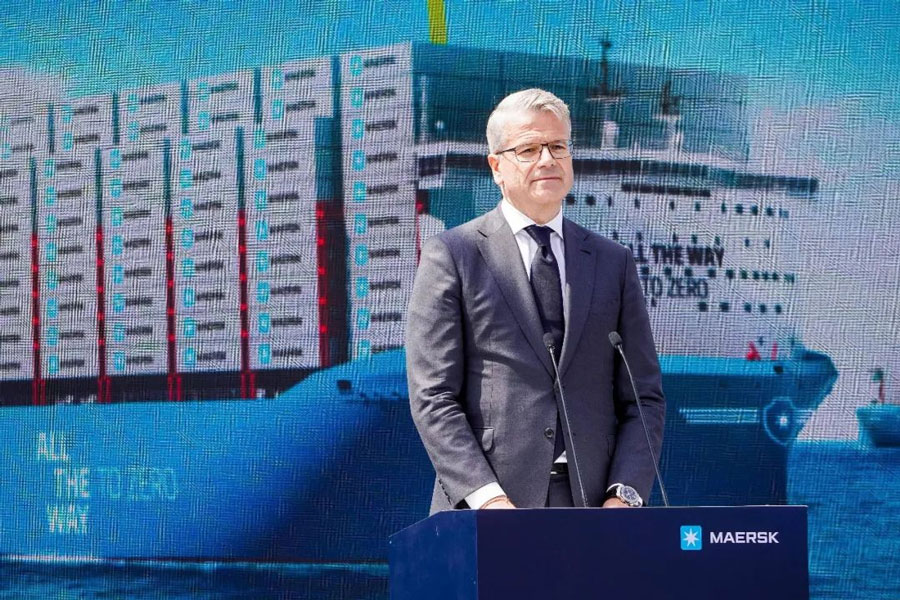

Maersk: Punitive tariffs themselves will not directly slow trade
In the face of the tariff policy implemented by the new US President Donald Trump, Maersk CEO Vincent Clerc expressed his unique insight. He argued that while Trump's tariff threats have created uncertainty in the freight market and international trade, punitive tariffs are not necessarily a problem in themselves. At the 2024 earnings conference, Ke Wensheng further elaborated on his views.
In the face of the uncertainty created by Trump's policies, Mr Cowen said Maersk was more optimistic about the future than it was a year ago. He believes that challenges such as the coronavirus pandemic and the Red Sea crisis have actually improved Maersk's ability to respond quickly to change. Maersk has proven itself to be adaptable and able to follow market changes quickly. Compared to before and after the 2008 financial crisis, Maersk is now much faster at implementing changes across its network of organizations and companies.
He also mentioned that Maersk is not over-predicting the specific impact of Trump's policies on the freight market. Instead of trying to create scenarios for all possibilities, he argues, it's better to focus on improving the ability to change things. Maersk's partnership with German container shipping company Hapag-Lloyd will make it easier to adapt to business if international trade patterns change. The newly launched Gemini collaboration is based on a simplified network of key ports, making it easier for Hapag-Lloyd and Maersk vessels to meet schedules and thus be more flexible in the changing freight market.
Mr Cowen believes the future of the shipping industry is brighter than it was 12 months ago. However, he made it clear that Maersk opposes high tariffs and trade wars like Trump's. He believes that free trade is better for consumers and expressed Maersk's strong support for free trade. In the face of tariff policy and market uncertainties, Maersk will continue to improve its adaptability and flexibly respond to various challenges.

In the face of the uncertainty created by Trump's policies, Mr Cowen said Maersk was more optimistic about the future than it was a year ago. He believes that challenges such as the coronavirus pandemic and the Red Sea crisis have actually improved Maersk's ability to respond quickly to change. Maersk has proven itself to be adaptable and able to follow market changes quickly. Compared to before and after the 2008 financial crisis, Maersk is now much faster at implementing changes across its network of organizations and companies.
He also mentioned that Maersk is not over-predicting the specific impact of Trump's policies on the freight market. Instead of trying to create scenarios for all possibilities, he argues, it's better to focus on improving the ability to change things. Maersk's partnership with German container shipping company Hapag-Lloyd will make it easier to adapt to business if international trade patterns change. The newly launched Gemini collaboration is based on a simplified network of key ports, making it easier for Hapag-Lloyd and Maersk vessels to meet schedules and thus be more flexible in the changing freight market.
Mr Cowen believes the future of the shipping industry is brighter than it was 12 months ago. However, he made it clear that Maersk opposes high tariffs and trade wars like Trump's. He believes that free trade is better for consumers and expressed Maersk's strong support for free trade. In the face of tariff policy and market uncertainties, Maersk will continue to improve its adaptability and flexibly respond to various challenges.





